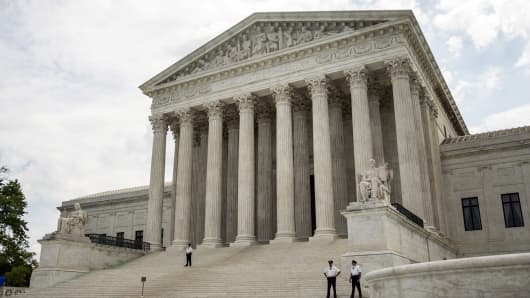The plaintiffs' petition for Supreme Court review relies heavily on the current split in the circuit rulings. The word "uncertainty" appears ten times in the 33 pages of the petition, sometimes twice in the same paragraph, in addition to numerous synonyms of the word. But that uncertainty could be eliminated by a clear ruling by the full D.C. Circuit in favor of the administration. Plaintiffs know that.
What is really driving the decision to seek high-court review now is the undisputed importance of the question. The numbers are astounding. A decision one way or the other affects billions of taxpayer dollars, millions of individuals, hundreds of thousands of employers, dozens of insurers, and, lest we forget, 36 states that have adopted the federally facilitated insurance exchanges at issue.
Plaintiffs assert in their petition: "It is far better for this Court to resolve this question now, to both preclude further detrimental reliance and to eliminate the Sword of Damocles that will hang over the IRS Rule otherwise." Maybe, maybe not.
It is up to the Supreme Court to decide whether to decide the question now. It would be surprising given the stakes if the Court never decided it at all.
Commentary by Dan Eaton, a partner with the San Diego law firm ofSeltzer Caplan McMahon Vitek where his practice focuses on defending andadvising employers. He also is a professor at the San Diego StateUniversity College of Business Administration where he teaches classes inbusiness ethics and employment law. Follow him on Twitter @DanEatonlaw.





